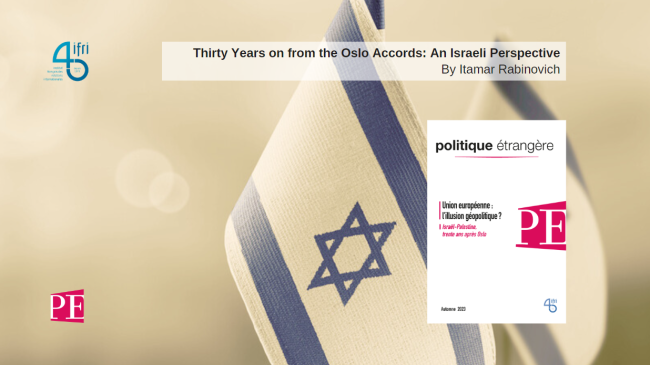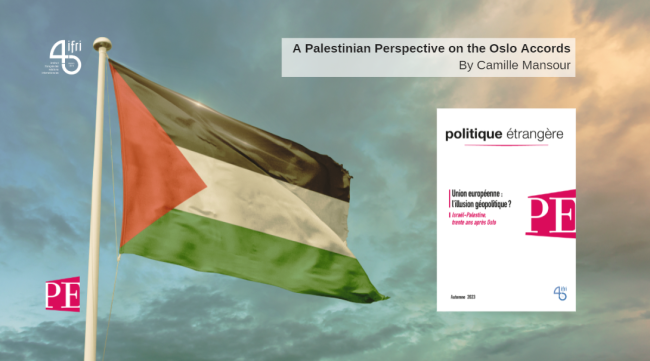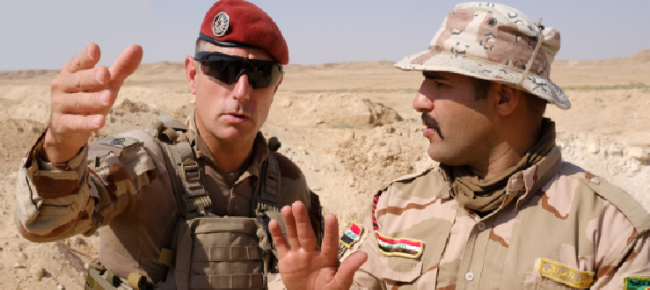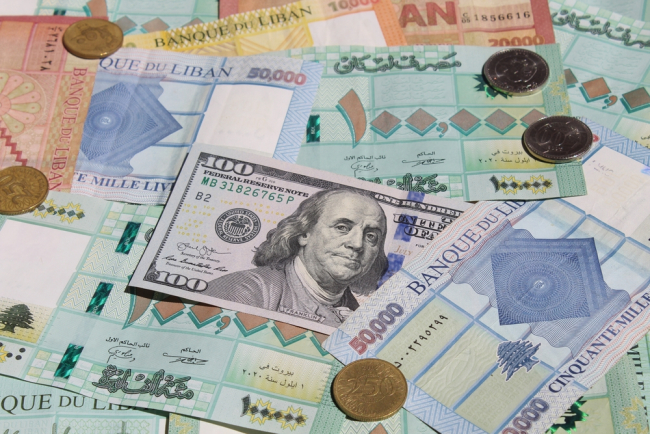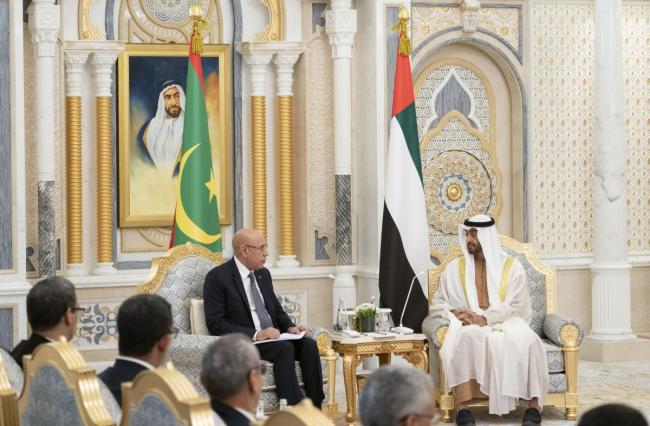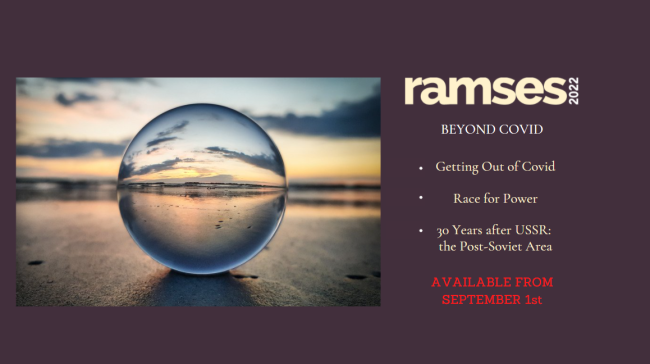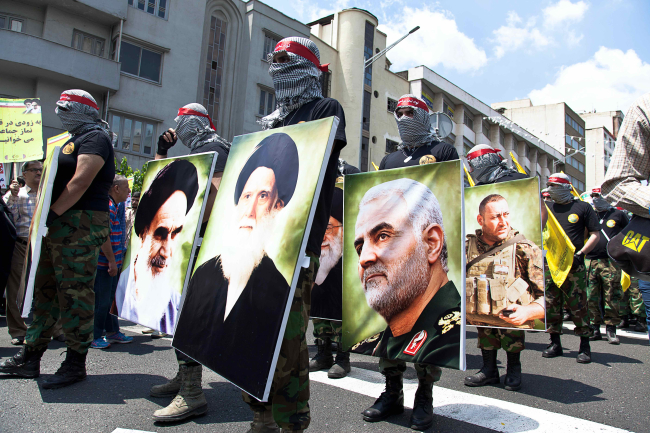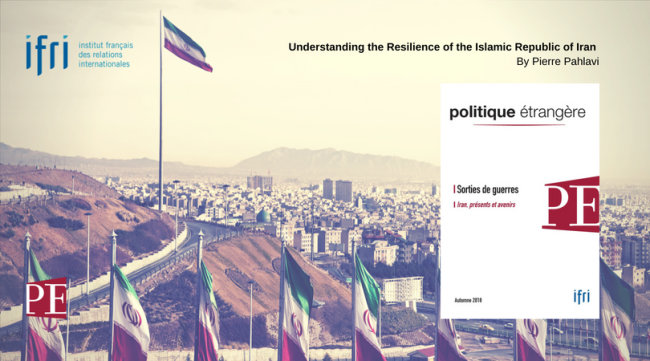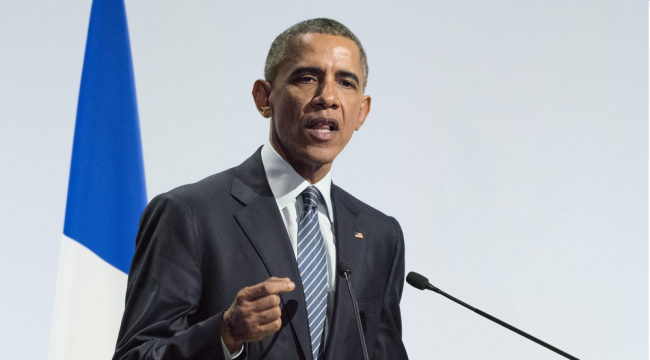Thirty Years on from the Oslo Accords: An Israeli Perspective
The Oslo agreements signed in 1993 raised high hopes for peace in the Middle East. But appraising the state of affairs, thirty years on, the picture is bleak.
A Palestinian Perspective on the Oslo Accords
The Oslo Agreement of 1993 was a declaration of principles that later needed to be clarified through further negotiations.
What Strategic Posture Should France Adopt in the Middle East?
France has a historical presence in the Middle East, where it has many interests to defend: the fight against terrorism, the promotion of the arms industry, the dissemination of humanitarian values, etc. To this end, it has a number of resources at its disposal, notably military: French forces are deployed in Iraq, Syria and Jordan as part of Operation Chammal, in Lebanon for the United Nations Interim Force in Lebanon (UNIFIL), and in the United Arab Emirates.
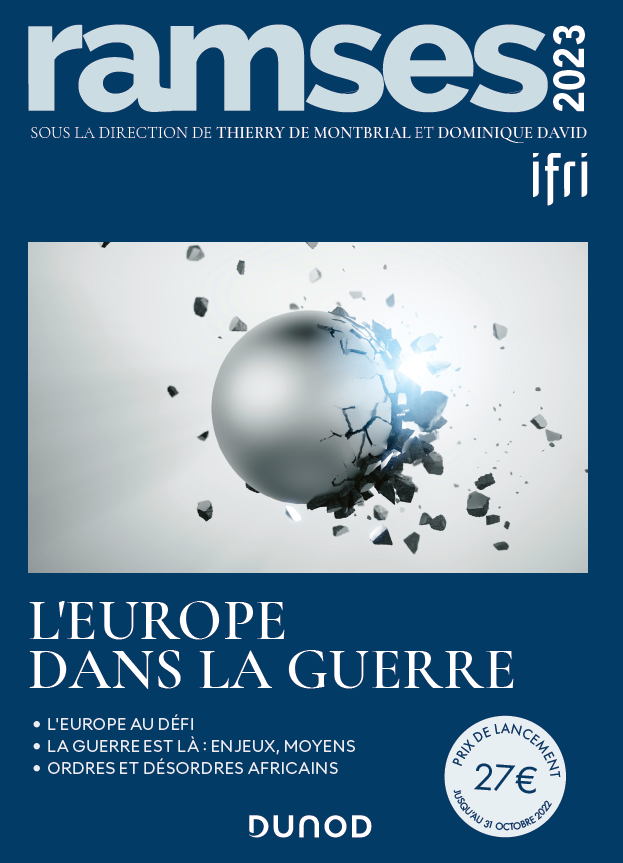
RAMSES 2023. Europe at War
For its 41st edition, RAMSES 2023. Europe at War, written by Ifri's research team and external experts, offers an in-depth and up-to-date analysis of geopolitics in today’s world.
Lebanese Banking Crisis: The Systemic Workings of a Wreck
The United Arab Emirates in Africa: The Partly Thwarted Ambitions of a New Regional Player
The United Arab Emirates (UAE) has long-standing ties with African countries, but the implementation of a genuine Africa policy dates back only about 15 years.
RAMSES 2022. Beyond Covid
For its 40th edition, RAMSES 2022. Beyond Covid, written by Ifri's research team and external experts, offers an in-depth and up-to-date analysis of geopolitics in today’s world.

Europe/United States: 50 Shades of Dependence
Is Joe Biden’s United States (US) returning to multilateral, traditional diplomacy? This more open stance does not eliminate either its domestic problems or the divergence in interests separating the US from the Europeans: how will open diplomacy fit in with the priority of defending US interests? Will Washington organize a broad anti-Chinese coalition that the Europeans are opposed to? Will sanctions with their resulting effects remain at the heart of US strategy? Will the Europeans be able to assert their sovereignty in the key area of new technologies against the US giants?
Lebanon: Out With The Old, In With The What?
Dorothée Schmid, head of the Middle East program participated in a webinar organized by Italian think tank ISPI and the Malcolm H. Kerr Carnegie Middle East Center to talk about the current Lebanese government, French and American foreign policy in the country.
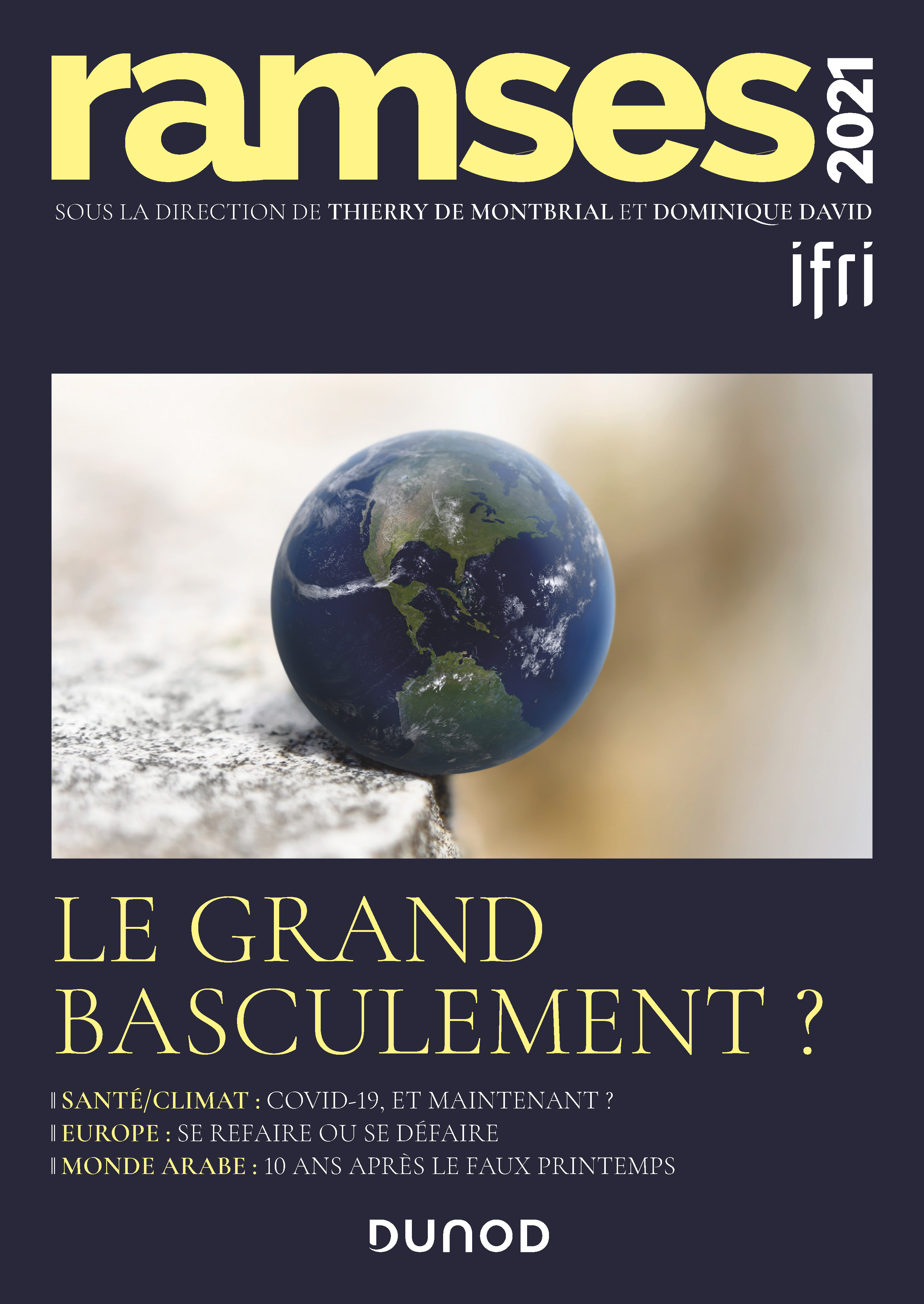
RAMSES 2021. At the Edge?
RAMSES 2021. At the Edge?, written by Ifri's research team and external experts, offers an in-depth and up-to-date analysis of geopolitics in today’s world.
L’Iran et ses “proxys” au Moyen-Orient. Les défis de la guerre par procuration
If Iran is a key player in the Middle East, it is in no small part because of its extensive network of armed militia, which it uses as proxies.
Quel avenir pour le djihadisme ? Al-Qaïda et Daech après le califat
Despite a relative weakening since 2017, the international jihadist movement should continue to pose a genuine threat over the next decade.
The US Oil Embargo on Iran: A New Oil Shock?
The 14 July 2015 Vienna agreement on Iran’s nuclear activities (Joint Comprehensive Plan of Action – JCPoA) was a game changer on the geopolitics in the Middle East and for the oil market. The oil sanctions were lifted and Iran increased significantly its production and exports. On 8 May 2018, President Trump announced that the United Stated (US) would withdraw from the agreement. Financial sanctions were reintroduced. From 5 November 2018 onwards, further sanctions will be re-imposed more specifically on petroleum related transactions, including the purchase of petroleum, petroleum products and petrochemical products. What could be the impact of this new embargo? Is there a risk of a new oil supply and price shock?
Understanding the Resilience of the Islamic Republic of Iran
The leaders of Iran nurture regional ambitions, and are conscious of the limits of their country’s power.
The Future Middle East Strategic Balance. Conventional and Unconventional Sources of Instability
This paper seeks to analyze the future Middle Eastern military balance of power, in a time horizon of five to ten years.
War and Democratic Decision Making: How do Democracies Argue and Decide Whether or Not to Intervene in Distant Wars?
What is the proper place and forum for decisions about war and peace in a democracy? There is surprisingly little consensus on this matter, not in theory and not in practice. While in Iraq, Libya and Syria, all Western actions have ended in failure, it seems necessary to analyze the place and importance of this aspect of the democratic decision making.
Russia's Diplomacy in the Middle East: Back to Geopolitics
Moscow's approach to the Middle East has undergone real changes from Soviet times to the present day: it evolved from creating zones of influence against the background of confrontation with the West to seeing the region through the prism of mainly economic interests, and, finally, to Moscow’s current pragmatic view.

Activists Without Borders
Various associations organise trips to Israel and/or to the Palestinian Territories. Someone who has no previous knowledge of the Near East and who takes part in a journey organised by a pro-Israeli group, would return to France with a very different vision of the Israeli-Palestinian conflict to that of someone who had travelled with a pro-Palestinian group.
For more information concerning the complete work, please click on this link.
Après Paris et San Bernardino, le terrorisme dans le débat américain
Both the Paris attacks and the San Bernardino shooting reopened the wound of terrorism in the United States. Although President Obama has not shifted his stance or his strategy on the issue, public opinion is worried and populist rhetoric is ever more present in the campaign for the 2016 election.

Israel and Hezbollah: The New Strategic Equation
After the war between Israel and Hezbollah during the summer of 2006, a deterrence strategy was established between the two parties. Occasional subsequent crises have thereby been contained and have been prevented from escalating into extensive confrontations.
Support independent French research
Ifri, a foundation recognized as being of public utility, relies largely on private donors – companies and individuals – to guarantee its sustainability and intellectual independence. Through their funding, donors help maintain the Institute's position among the world's leading think tanks. By benefiting from an internationally recognized network and expertise, donors refine their understanding of geopolitical risk and its consequences on global politics and the economy. In 2025, Ifri supports more than 80 French and foreign companies and organizations.









